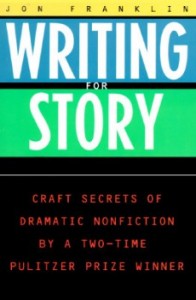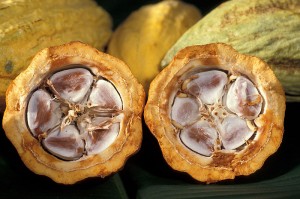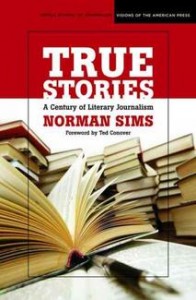This morning I finished Jon Franklin’s Writing for Story, what I hope is the last “how to” book I’m going to have to read this semester. Textbooks aside, in the first three weeks of classes I’ve read three books focused on how to avoid complete and total blinding failure as a writer. I have found it incredibly depressing that there is even a need for such manuals. Combined with those that I accumulated during my time as an undergrad at Lehigh, I am now the not-so-proud owner of quite the collection of books on how to write.
 It isn’t that I don’t find value in these books, I think that there are definitely nuggets of good advice and even a little humor about style, format, the industry, and numerous other aspects of journalism as a profession. However, I find that I get pretty frustrated listening to someone who is considered a “success” brag about how they got there. Congratulations, by capturing the ever elusive combination of financial success, public success, and the praise of your peers you have been deemed worthy enough to hold the distinguished title of being a “good writer.” Good for you.
It isn’t that I don’t find value in these books, I think that there are definitely nuggets of good advice and even a little humor about style, format, the industry, and numerous other aspects of journalism as a profession. However, I find that I get pretty frustrated listening to someone who is considered a “success” brag about how they got there. Congratulations, by capturing the ever elusive combination of financial success, public success, and the praise of your peers you have been deemed worthy enough to hold the distinguished title of being a “good writer.” Good for you.
I think the reason I am annoyed right now largely has to do with the generalizations that Franklin makes in his book. He assumes that all young journalists are a bunch of immature children that need to have rejection beat the desire to write, right out of us before we can accept that we aren’t going to be great artists. Well Jon Franklin, I for one don’t want to be an artist, I’ve never thought of writing as my art, and I hold no misguided feelings of anguish when an editor tells me a piece doesn’t work.
Yes, I’ve struggled to find my way in terms of all the mechanics of writing, to figure out what works and what doesn’t, as my early copy from
BioTechniques CLEARLY indicates. But, I just don’t consider myself some downtrodden journalist struggling to find their literary voice. I want to talk in facts, I want to write hard news, sweeping poetic literary statements just aren’t my style, and I don’t like being lumped in with every other young writer afflicted with wanting to write. I don’t like the fact that to be considered “good” I have to unlock some magical realm of literary style that will come only with experience.
Perhaps I just aspire to lesser things than my more ideological counterparts, because I see the value in literary journalism and I think its great, but I just don’t feel some terrible stinging sensation in my soul that I’m not there yet. I know I’ll get there, every piece I write I see myself getting better. Reading all of these books on how to write and what mistakes to avoid hasn’t left me questioning whether or not I can be a great writer, I know that I can be a great writer, I guess I’m just wondering if I’m not tormented by words that go bump in the night, if my desire to be a writer is strong enough.
Its troubling to me that I’m upset that where I’m at in life isn’t upsetting me. If you follow all of the “expert” opinions contained in these books I should be pulling my hair out, and I’m not. I’m also not disillusioned to think its because I’m so wonderful that I just don’t fit the mould. That’s not it. So why, as a fledgling journalist am I not depressed? According to all these how to manuals I should be.
I feel like the authors of these books could have really benefitted from a manual entitled: How to enjoy learning how to write. I am enjoying my ride and the twists and turns it takes me on, even the rejection. It might sting but it means I’m still chasing after something, and I find comfort in that. I’m in no rush to be perfect right out of the gate, and I always thought that was a good thing, but is it? Should I be more driven? Reading these books didn’t teach my how to write, all they did was make me question my personality.


